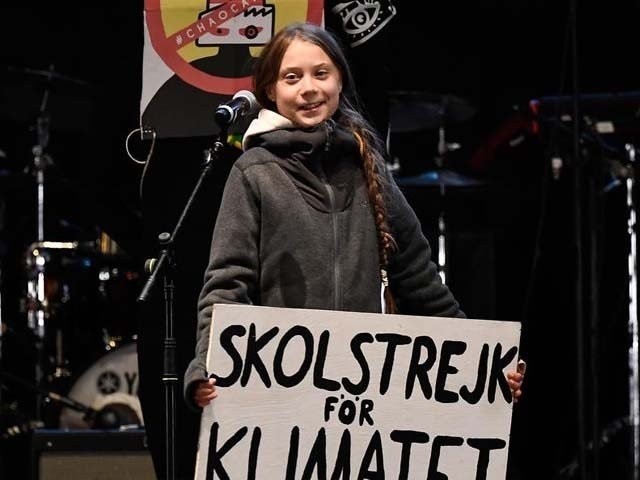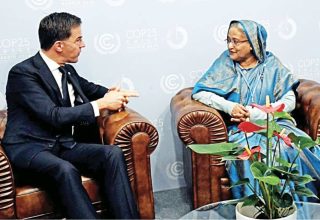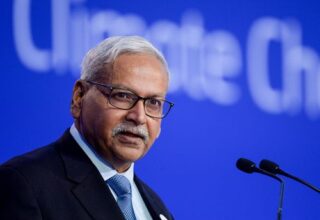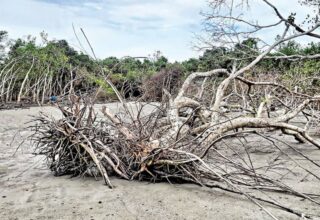
The 25th Conference of Parties (COP25) of the United Nations Framework Convention on Climate Change (UNFCCC) being held in Madrid, Spain is now half way through with the technical level negotiations having been completed and the ministers now arriving in to lock the final political agreements.
There are two major politically sensitive issues which will have to be addressed by the ministers. The first is about Article 6 of the Paris Agreement which focuses on the option of using market mechanisms to trade climate change actions across countries and companies.
In theory it makes much sense to incentivise the private sector companies to align their profit making business models with tackling climate change so that they can make money by doing good. Although this sounds nice in theory, the result of previous experience under the Kyoto Protocol where there was a Clean Development Mechanism (CDM), which allowed trading of Carbon Emission Reductions (CERs), was not so positive. The first problem with the CDM was that only a few developing countries benefited from it, with China and India generating and getting paid for the largest amount of CERs.
The second problem arose when the CDM market collapsed when the Kyoto Protocol was not adhered to by countries like the US, which resulted in the price of CERs to collapse to almost zero.
Hence many developing countries are suspicious that they may have to face a similar situation again. Also a lack of clarity on how the new mechanism—which will be different from the Kyoto Protocol—would work is increasing concern.
The developed countries who like this market mechanism are pushing to reach an agreement in Madrid. We will see what happens during the political negotiations this week.
The second politically sensitive issue that the ministers have to address is the review of the Warsaw International Mechanism (WIM) on Loss and Damage (LnD) which is an important decision to be made here during COP25 in Madrid.
The most vulnerable countries have formed a strong common stand at the beginning of the COP demanding that the WIM be allowed to have both an implementation arm as well as a new financial arm going forward. The good news at the end of the first week of COP is that their demands have been strongly supported by the G77 and China group which is the coalition of all developing countries.
Gaining the support of countries like China and India as well as other developing countries is a big achievement for us as this is not always the case.
So the end of the first week has been positive for Bangladesh and the other vulnerable developing countries as we now have a united position. However, the real political push back from the US has already started with a rejection of these demands. The European Union however, seems more open to discussing ways to reach an agreement. This will require the ministers (not just the negotiators) of the developing countries to remain steadfast and united until the end. If they compromise too early than we will lose the fight. We would only be able to win the argument by sticking to our guns until the very end and not accepting any agreement that does not address our demands.
This will certainly be a major political issue over the next few days.
In other news, Greta Thunberg has arrived in Madrid and joined a massive crowd of over half a million young people on the streets of Madrid to raise their voices for the leaders in the COP to raise their ambition to tackle Climate Change as a genuine emergency. However, it is unfortunate that government officials inside the COP premises seem to remain deaf to the youths’ demands.
It remains to be seen who will win by next week. I will report on the outcomes in my next column.
Also the Climate Vulnerable Forum (CVF) of leaders currently chaired by President Hilda Heine of Marshall Islands (who will hand over the position to Prime Minister Sheikh Hasina next year) has launched a major public campaign called Madrid Ambition Drive (#MAD4Survival) which is being strongly supported by other developing countries and civil society. It is meant to put pressure on the big emitters to raise their ambition before COP26 to be held in Glasgow, United Kingdom in December 2020.
Originally this article was published on December 11, 2019 at Daily Star. The author Dr. Saleemul Huq is the director of the International Centre for Climate Change and Development (ICCCAD) at the Independent University, Bangladesh (IUB).
Email: saleemul.huq@icccad.net






